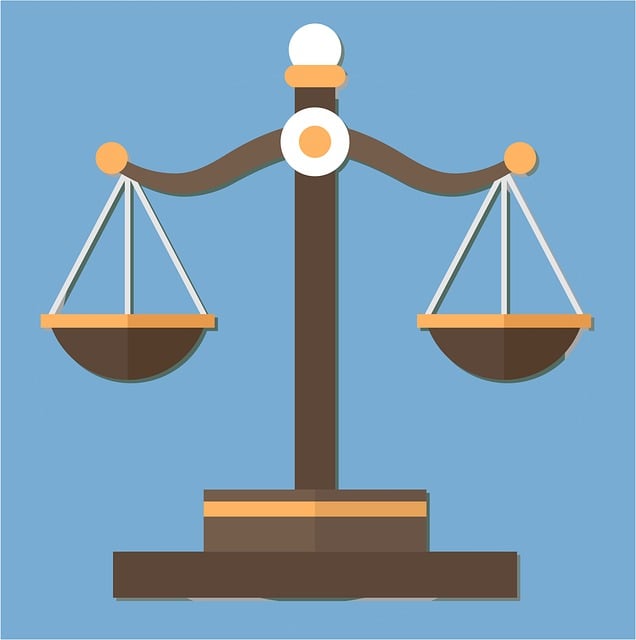In RF Securities, understanding contract law is key for resolving breaches, which can range from data manipulation to regulatory non-compliance. Strategies include negotiation, arbitration, and litigation, with the goal of compensation and compliance. Alternative Dispute Resolution (ADR) offers a cost-effective, discreet approach, especially valuable in complex financial cases. Regulatory bodies like SEC oversee markets, identify disputes, and enforce ethical practices through guidance on dispute resolution methods while protecting investors. Mastering "How to Resolve Breach of Contract Disputes" is essential for navigating this dynamic industry.
The RF Securities industry, governed by intricate regulations, relies on robust contract law to ensure fair trading. This article navigates the complex landscape of RF Securities contract law, providing insights into identifying and resolving breach of contract disputes. We explore various types of breaches, legal remedies, dispute resolution strategies tailored for investors, and regulatory oversight mechanisms. By understanding these elements, participants can effectively manage risks and know how to resolve breach of contract disputes in this dynamic sector.
- Understanding Contract Law in RF Securities
- Identifying Breach: Types and Examples
- Legal Remedies for Contract Violations
- Dispute Resolution Strategies for Investors
- Regulatory Oversight and Enforcement Actions
Understanding Contract Law in RF Securities

In the dynamic realm of RF Securities, understanding contract law is paramount for all stakeholders. Contracts form the backbone of transactions, dictating terms and conditions that ensure fair and transparent operations. When a breach occurs, it can lead to complex disputes, requiring a meticulous approach to resolution. Investors, brokers, and regulators must be equipped with knowledge on how to navigate these legal quagmires.
Effective conflict resolution in RF Securities often involves a strategic blend of negotiation, arbitration, and litigation. For his clients, securing favorable outcomes demands a deep understanding of contractual obligations and the ability to mitigate risks associated with white-collar defense. Leveraging expertise in contract law allows parties to avoid indictment by proactively addressing potential breaches and implementing robust risk management strategies.
Identifying Breach: Types and Examples

In the dynamic landscape of RF securities industry regulation, identifying breaches is a critical step in maintaining fairness and integrity. Breaches can manifest in various forms, from misrepresenting financial data to failing to adhere to regulatory guidelines. For instance, a company might promise investors specific returns but subsequently manipulate market information to achieve those figures, or an intermediary could neglect their duty of care, leading to significant losses for clients. Detecting such issues is paramount in high-stakes cases, where achieving extraordinary results requires meticulous scrutiny and adherence to legal standards.
How to Resolve Breach of Contract Disputes involves a combination of thorough investigation and strategic legal action. In the event of a breach, parties should first assess the type and extent of the violation. Common types include breaches of duty, misrepresentation, or non-compliance with contractual obligations. Each scenario necessitates a tailored approach. For example, in cases where financial data is manipulated, forensic accounting can help uncover fraudulent activities. Once identified, resolving these disputes often involves negotiations, mediations, or litigation, aiming to restore fairness and compensate affected parties while ensuring the respective business operates within the confines of the law.
Legal Remedies for Contract Violations

In the event of a breach of contract within the RF Securities Industry, understanding legal remedies is paramount for all parties involved. When a party fails to fulfill their contractual obligations, it can lead to disputes that require careful navigation through the legal system. The first step in resolving such conflicts is identifying the specific violation and its impact. This may involve a thorough review of the contract, examining performance records, and gathering evidence to support one’s position.
Once a breach is established, parties have several options for recourse. These can range from negotiating a settlement, where both sides agree on terms to resolve the dispute, to more formal processes such as arbitration or litigation. The latter involves presenting the case before a court of law, where a judge or jury determines the outcome. A winning challenging defense verdict in these scenarios is not uncommon, especially when well-prepared legal arguments are presented and evidence is compelling. Beyond financial compensation for damages, successful outcomes can also involve shaping industry standards and practices through precedent-setting cases, benefiting not just the immediate parties but also the broader philanthropic and political communities.
Dispute Resolution Strategies for Investors

In the dynamic landscape of RF securities, investors often face complex challenges when dealing with breach of contract disputes. How to Resolve Breach of Contract Disputes effectively involves a strategic approach that combines legal expertise and a deep understanding of financial markets. Many respective businesses across the country have found success in mediating these conflicts through alternative dispute resolution (ADR) methods. ADR offers a cost-effective, efficient solution compared to traditional litigation, often reaching resolutions faster and with less acrimony.
The process typically involves facilitating open communication between opposing parties, allowing for negotiation and compromise. In cases of white collar defense, where complex financial transactions are at play, this approach can be particularly beneficial. By leveraging ADR, investors not only save time and legal fees but also maintain a level of privacy that court proceedings might not offer. This discrete method encourages collaborative problem-solving, fostering a more positive outcome for all involved parties.
Regulatory Oversight and Enforcement Actions

Regulatory oversight plays a pivotal role in ensuring ethical practices within the RF Securities Industry. Authorities like the SEC (Securities and Exchange Commission) meticulously monitor market activities, scrutinizing trading patterns, financial disclosures, and compliance with regulatory frameworks. This oversight is crucial for identifying potential breaches of contract disputes that may arise from fraudulent activities or non-compliance. By leveraging their unprecedented track record in white collar defense, regulators are equipped to take swift enforcement actions when violations are detected.
Enforcement actions often involve issuing cease-and-desist orders, imposing fines, and even criminal charges for severe transgressions. These measures serve as a deterrent, encouraging market participants to adhere strictly to the rules. In case of contract disputes, regulatory bodies offer guidance on how to resolve them, ensuring fairness and transparency. This process involves mediation, arbitration, or litigation, with regulators providing support to protect investor interests and maintain the integrity of the securities marketplace.
The RF Securities industry, governed by intricate contract law, demands a robust understanding of rights and obligations. Effective dispute resolution is paramount, encompassing identification of breaches, exploration of legal remedies, and efficient strategies for resolving conflicts. Investors should be adept at navigating regulatory oversight and enforcement actions to ensure fair practices. By familiarizing themselves with these aspects, individuals can protect their interests and confidently engage in the RF Securities market, ultimately fostering a transparent and secure investment environment. Learning how to resolve breach of contract disputes is essential for all participants to maintain trust and integrity within this dynamic sector.






